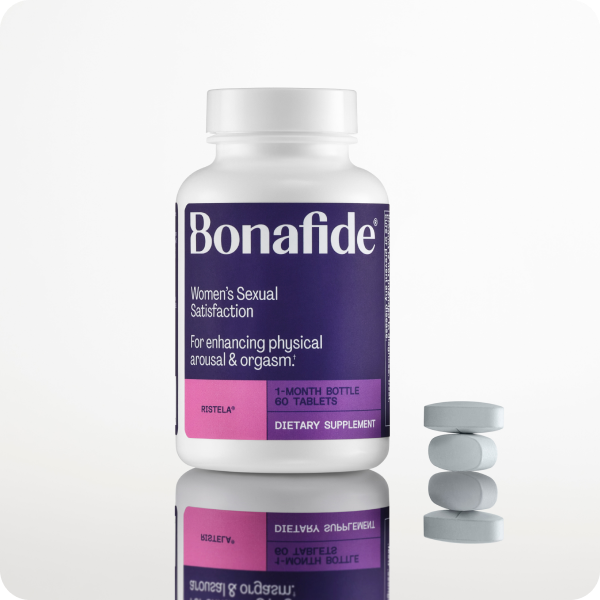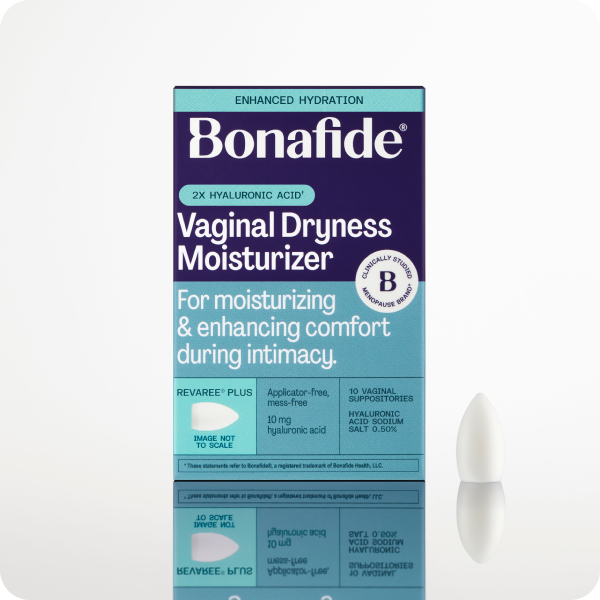Great sex after menopause doesn’t always come easy. For some women, physical changes from declining hormones coupled with life scenarios that may trigger feelings of stress or depression can put sexual activity at the bottom of the priority list. But there may be many benefits of sex after menopause, says Dr. Brooke Faught, DNP. So, it’s worth taking steps to make it more pleasurable and something to look forward to.
Here, we talk with Dr. Faught to learn more about the benefits of sex during and after menopause. Plus, we provide tips on what you can do to improve your sex life, in the event it’s become uncomfortable or you’re having trouble getting aroused.
How is Sex Different After Menopause?
Women experience so many changes in general during this time, and the effects can impact their sex lives, Dr. Faught explains. Declining estrogen levels can cause vaginal dryness that may make sex physically uncomfortable, but that’s just one aspect. Hormone-driven hot flashes and insomnia — symptoms that can continue into postmenopause — can factor in too.
“There may be a lot of other transitions happening as well,” Dr. Faught says. Family structures can shift as parents age and children grow up and leave home. Some women may also feel self-conscious about menopause weight gain or how their bodies have changed. “It’s a lot to experience at the same time,” Dr. Faught says, and for some women, it can impact their interest in and feelings towards sex.
Check out this quick video from Bonafide Chief Medical Officer, Dr. Alyssa Dweck, about why and how sex can change after menopause.
Can You Get Your Sex Drive Back After Menopause?
Not only can sex after menopause happen, maintaining an active sex life offers important benefits, Dr. Faught says. “Orgasm and arousal release biochemicals like adrenaline and dopamine, which stimulate awareness, cognitive functioning, and mood,” she explains. It also releases oxytocin, the so-called love hormone that can help partners feel bonded and even enhance relationship satisfaction as a whole, research shows.1
A satisfying sex life can do the body good too. Like exercise, sex helps protect against heart disease by raising your heart rate and lowering blood pressure. Having sex once or twice a week is thought to boost the immune system. And hormones released by the body after orgasm can even promote a better night’s sleep.2 Orgasms even release natural pain-relieving hormones that may ease the aches that creep up as we age, Dr. Faught says.
However, as is often the case as our bodies grow older, the element of use-it-or-lose-it can come into play. “The vulvar and vaginal tissue oftentimes benefit from regular sexual activity due to the consistent mechanical stretching, recurrent lubrication, and enhancement of blood flow that happens during sex,” Dr. Faught explains. Long periods without sex may cause the vulvar and vaginal tissue to become less elastic or lubricated, which could make intercourse uncomfortable when it eventually happens again.
Of course, women shouldn’t let this possibility pressure them into having sex, Dr. Faught says. “It’s important to differentiate between positive and negative experiences. Just because sex has benefits doesn’t mean you should force yourself into a sexual encounter you don’t want,” she explains. And if a woman who has gone for a long period without sex decides to have sex again, there are options for easing that transition. “Vaginal muscle memory can be restored at any age,” Dr. Faught says. “If a patient wants to have intercourse or penetrative play, I’ll have them use vaginal dilators, vibrators, or a dildo.”
Keep in mind, too, that penetrative sex with a penis isn’t the only way to reap the rewards of sex. “There are so many different ways to be sexually active,” says Dr. Faught. “It could be reading erotica, self-stimulation, or kissing your partner. All of these things can enhance blood flow and lubrication and benefit a woman’s vaginal tissue.”
How to Increase Sex Drive After Menopause
Physical barriers like vaginal dryness or pain can take sex off the table completely for many women, so it’s important to manage those foundational issues first. Be open about your symptoms with your healthcare provider and ask about the best options for treating them. “There are hormonal and non-hormonal options for dryness, as well as medications to address vulvar skin disorders that can cause itching or burning,” Dr. Faught says.
Once physical issues are addressed, women can start focusing on finding ways to enhance their sexual desire. “Desire isn’t always spontaneous. Women may have to put themselves in the scenario of creating arousal before desire can happen,” says Dr. Faught.
You may be wondering if it’s possible to still excite a woman after menopause. Some women respond to massaging the genitals with lubricants, which enhances blood flow to the brain and triggers feelings of sexual desire, Dr. Faught explains. Erotica or visual cues can be stimulating too. “Read a hot book, or if you feel comfortable, you can add in videos or porn,” she says.
Sex Can Be Great After Menopause
If you’re not satisfied with your sex life after menopause, work with a provider who can help you brainstorm solutions to make it better. “I would say there’s always something that can be done. It’s just about getting creative,” Dr. Faught says. “Even if traditional methods don’t seem to work and you’re working with a provider who says they’ve tried everything, find somebody else. If it’s important to you, keep trying.”
Resources
- https://www.jsm.jsexmed.org/article/S1743-6095(15)30970-X/fulltext
- https://familydoctor.org/health-benefits-good-sex-life/











Comments
Post commentRevaree has aid me in having intercourse and vaginal dryness. I have tried introducing it to some of my friends. However, their concern is not being able to purchasing it on a regular basis due to the cost.
I have used Revaree for over a year on and off. It has helped with my vaginal dryness and it certainly assists when having sex.